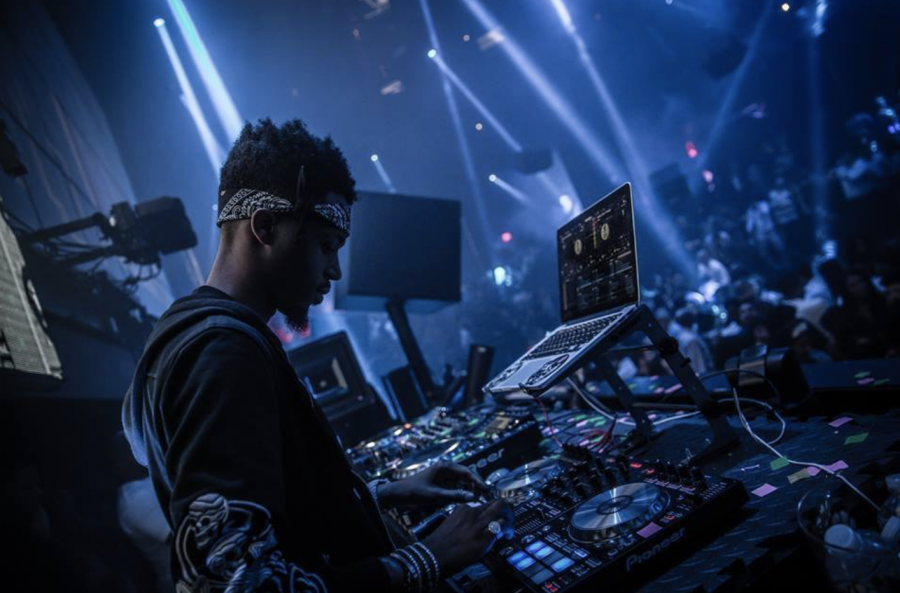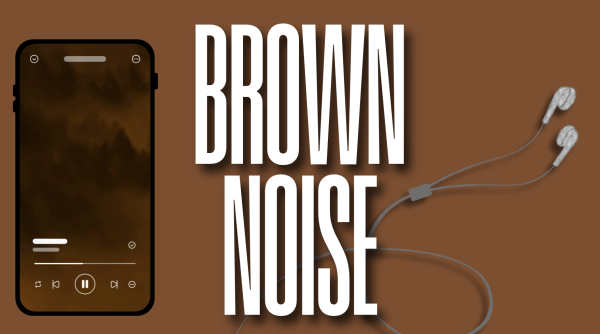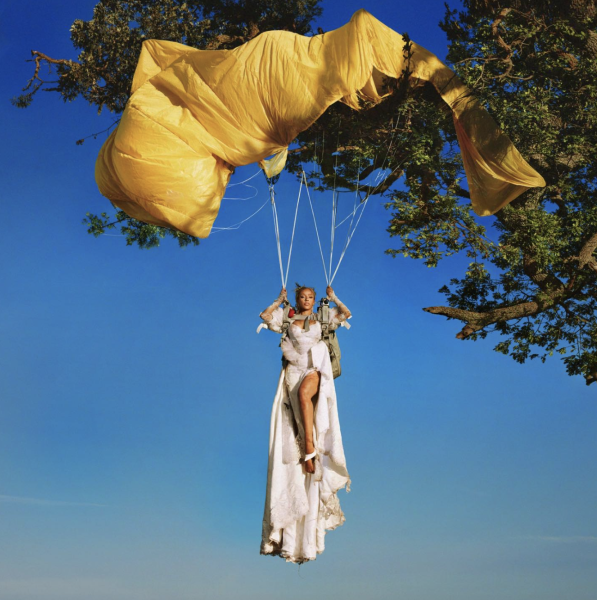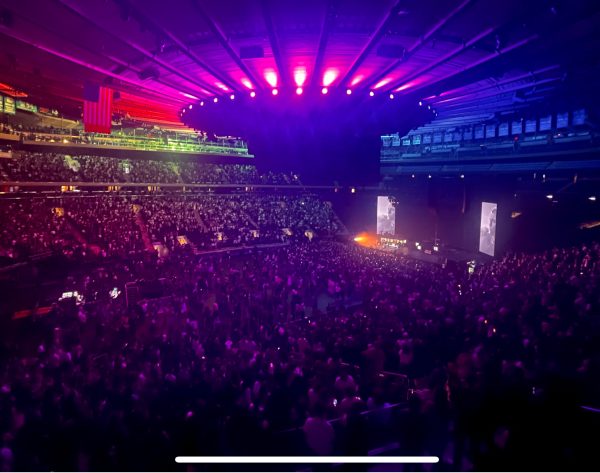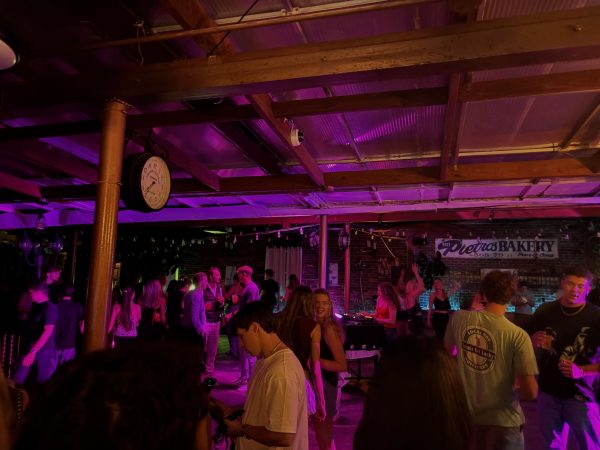Metro Boomin’s New Album a Home Run
By Kieran Press-Reynolds
Most hip-hop fans know super producer Metro Boomin. His tags “Metro Boomin want some more,” and “If young Metro don’t trust you he gon’ shoot you,” have become holy engravings, the tell-tale signs that the song you are about to listen to will bang. When he announced his resignation from the music world earlier this year, it shocked everybody.
For the rap scene, it was like dad went AWOL. All through the 2010s, Metro had nurtured and guided the trap scene, growing to be somewhat of a father to it. But then he abandoned the household when it needed him most, at the key transitional point when people began to ask, “What’s after trap?” And he left us under the care of inferior, second-rate uncles like Murda Beatz and Ronny J, who know a bit about parenting but have never had any kids themselves. It was disappointing.
It turned out to be a gimmick, a hit back against the flak he caught last year for over-saturating the basic trap beat formula that he had mastered on outstanding hits like Migos’s “Bad and Boujee” and Future’s “Mask Off.” When mysterious billboards appeared last week in New York City and Atlanta, with a portrait of Metro posted along with the subtext “MISSING HAVE YOU SEEN THIS MAN,” it became clear that it was some sort of a campaign. Metro had left us for a while just so that we would appreciate him all the more.
NOT ALL HEROES WEAR CAPES makes Metro more deserving of a cape than any superhero I have seen this year. It is as transcendent as a trap album can be, with as distinct and enjoyable an imprint as the most forward-thinking and idiosyncratic rap producers, like Travis Scott’s Mike Dean: you can tell it is Metro Boomin from the get-go, basslines smooth as silk and drums crisp and punchy. But it is an evolution, too: Metro has mastered the art of sampling, weaving them in like no trapper before, using samples as illustrious time machines to elevate each song above simply “trap.” When Metro mixes 80s star Patti LaBelle into a 21 Savage track, it sounds like they actually recorded in the studio together.
Even with a World Series-winning roster, it is Metro, the coach, who is the hardest hitter. Each instrumental is different, but linked by a sublime consistency. He contours every soundscape with a myriad of sound effects, like reverb-dipped laughs and unintelligible exclamations that artfully cocoon around each rapper’s verses and ad-libs. The album is one whole, a nearly perfect 13-track collection complete with slick transitions between songs and the sense that even though every track is special in its own right, they could still be played alongside one another.
Normally when you hear elegant strings or intense brass sections in rap tracks, it feels over-ornate. But Metro makes it work, finding the perfect equilibrium so that each arrangement is not too serious or too corny, but fun and purposeful, whether functioning to underline a rapper’s tone or reflect well against the bassline or melody.
In “10 Freaky Girls,” for example, Metro sets up a glorious horn section by charging it up, a low hum that grows and growls as the hi-hats click off and 21 Savage stampedes forward with his threatening, “Hangin’ off my earlobes is a rock (a rock) / Hangin’ off my waistline is a Glock (pop pop),” hook. Then the volume of the horns rises above the vocals, and it feels made-to-be, like 21 Savage is Darth Vader marching through Atlanta, and this is his imperial anthem.
21 Savage has always been in it for the memes, and his work on “Don’t Come Out The House” pushes new boundaries. He literally whispers an entire verse. I watch a lot of ASMR, but I have never seen a video where someone mentions, “Slaughter Gang so I keep a knife.” It did send tingles up my spine, but not in a relaxing way. It is a little disappointing because when the beat picks up for real, it actually does slap, and it is also the first collaboration between Metro and up-and-comer Tay Keith, which is exciting. But the whispering makes it hard to listen to in full, effectively reducing the song to joke status.
Along with 21 Savage, Travis Scott is another recurring guest on the album. He features most prominently on “Overdue,” the song that probably best exemplifies Metro’s sampling skill. Metro uses the chorus of Annie’s “Anthonio” (Berlin Breakdown Version) from the film The Guest. The faded, misty-night female vocals are sped up, injecting them with a sort of unreal desperation that sounds sensational supporting Scott’s slower musing.
The strings on the second half of the song sound ripped straight out of “Pokemon Mystery Dungeon: Explorers of Time,” and it makes me long to be a kid again playing video games, as if that was the greatest time ever. I am sure it reminds other people of other things, and that is just it: Metro has managed to recreate that dreamlike feeling. When you have fetishized the past so much, you feel nostalgic for a time that never existed: an impossibly happy state.
Scott is also great on “Up To Something” and “No More.”
The former features Young Thug as well, and the masterful duo rises to the stratosphere thanks to Metro’s excellent production. Metro provides snaky synths and gummy 808 glides, and along with the deep humming in the background and the wonky atmospherics (distorted ad-libs and wordless reverberations), the track feels like a close relative to Scott and Thug’s 2014 classic “Skyfall.”
On “No More,” Scott teams up with 21 Savage and Kodak Black over a brooding, dark trap beat. It sounds like they are sitting around a campfire, each telling their Alcoholics Anonymous story in turn as Metro strums on a guitar in the background. All three contribute sobering verses and the beat hits hard. It is more of a slow burner than a club banger, though, stuffed with haunting laugh effects, lean pouring sounds and atmospheric background rumblings.
What is really impressive about the album is its stamina, constantly changing up the mood and flow so that it never feels boring. Even on Metro’s legendary 2017 album with 21 Savage and Offset, Without Warning, there were only 10 tracks, and it seemed to run out of steam by the end. In this saturated trap field, with albums from Migos, Young Thug, Trippie Redd, Playboi Carti, et al seemingly dropping every other week, it’s nearly impossible to keep a trap-trained ear entertained anymore.
But Metro does it flawlessly, and his work might highlight the next step for trap as an art form: samples, which would actually mean going back to hip-hop’s roots.
In fact, hip-hop came to be through sampling. DJ Kool Herc created the first breakbeat by looping the break section from The Winstons’ “Amen, Brother.” The sample-based approach of producers like Prince Paul, RZA, DJ Shadow and more used to be a mainstay of hip-hop through the ’80s, ’90s and ’00s. But it has faded in the modern era, with only a few producers, most notably Kanye West, centering their music on samples.
Instead, most of the Atlanta, Houston, New Orleans and Los Angeles producers use the same kind of gear and software as EDM producers, drawing from a tired bag of programmed beats, synthesizers and effects. Samples are used rarely, if at all, and when they are they are fairly subliminal, so they don’t announce their ability to be recognized. This is why a lot of the top Billboard hits feel interchangeable and why trap music especially seems to be in a slump of over-saturation. That’s why Metro’s new album stands out so much.
Metro is paving a path where trap songs can “escape” their now-tiresome structure by artistically rendering samples so that the tracks become almost cinematic. Trap has already developed in the late 2010s into a highly melodic form, with a major focus on beats over vocals, and this album pushes it further. Metro’s world is less about how the lyrics make you feel and more about how the entire soundscape paints a picture in your mind.





































































































































































































